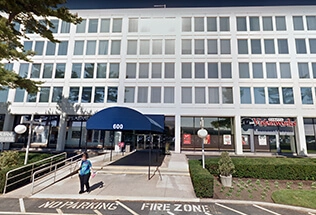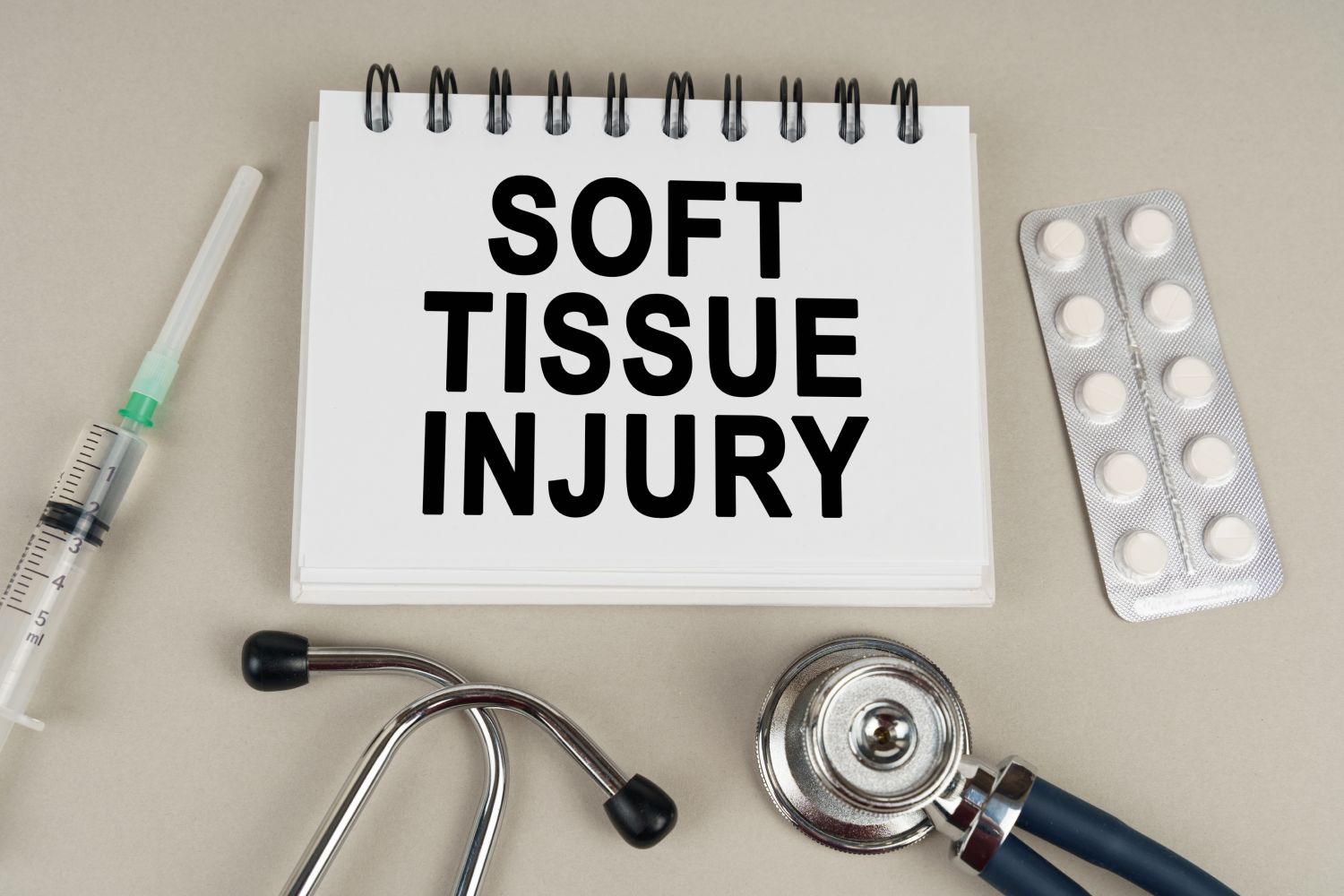Everyone experiences muscle strain sooner or later. These unseen injuries can cause intense soreness and might stick around for a while. So, how long do muscle strains last, and should you be concerned if it goes on for too long?
In truth, how long your muscle strain lasts depends on its severity and various other factors. Read on to discover more about this topic, or contact Schwartzapfel Lawyers at 1-516-342-2200 or onlinefor a free consultation.
What Is A Muscle Strain?
A muscle strain is an injury characterized by the tearing or stretching of muscle fibers. Muscle fibers are tissues that can expand or contract to facilitate movement and strength. In most cases, a muscle strain happens either because you stretch the muscle beyond its limits until it tears or the muscle contracts too strongly, which can cause bruising or tearing as well.
In any event, muscle strains are frequently accompanied by physically uncomfortable symptoms. Yet, in the worst cases, muscle strain can prevent you from moving, lifting objects, or carrying out daily physical activities.
A muscle strain can happen to anyone, but they are especially prevalent in athletes. According to the National Institute of Health, muscle strains and lesions are the most common injuries for athletes of all types, comprising up to 55% of all injuries.
What Types Of Muscle Strains Are There?
Technically, physicians classify muscle strains into three (3) distinct types or grades as follows:
- Grade 1: These are mild strains with only a few muscle fibers being torn, stretched, or damaged. These can be painful, but muscles typically retain their normal strength.
- Grade 2: These are moderate strains with more injured fibers and more severe tenderness or muscle pain. Grade 2 strains usually have mild swelling and a noticeable loss of strength. They may be accompanied by a bruise.
- Grade 3: These are severe strains in which a muscle is torn all the way through. This can sometimes cause a popping sensation if the muscle rips into two separate pieces or is pulled away from its anchoring tendon. Complete tears can be very serious and may prevent someone from using a muscle. They frequently come with very uncountable symptoms like intense pain, tenderness, swelling, etc.
The grade of muscle strain you experience can determine how long it will last and how long you can expect symptoms to continue.
You can only understand what grade of muscle strain you’ve experienced if you visit a medical professional. If you don’t visit a doctor or physical therapist, you can try to judge your symptoms and the severity of the injury by considering how difficult it is to walk or move around or how painful your symptoms are. However, seeking proper healthcare is always the wisest first step.
To learn more now, speak with the personal injury pros at Schwartzapfel Lawyers by dialing 1-516-342-2200 or visiting us online now!
What Are The Symptoms Of Muscle Strains?
Muscle strains are often characterized by discomfort or pain in the affected area. Generally, you’ll feel soreness or tenderness in the muscles that are stretched or torn.
However, other common symptoms of muscle strain include but are not limited to:
- Discoloration of the skin or flesh around the affected area, similar to a bruise.
- Popping or strange sensations when using the muscle.
- Reduced or loss of muscle functionality (e.g., you strain your left bicep, so you can’t lift things as well as before).
Additionally, muscle strain can be accompanied by symptoms of ancillary conditions like joint damage or ankle sprains. In some instances, the same injury that causes a muscle strain can also cause injuries to the surrounding soft tissue. If you believe you’ve been seriously injured, speak to a medical professional as soon as you can.
Fortunately, there are many ways to treat the injured area, whether that area includes your hamstrings, your muscles, or something else. Some examples of muscle strain treatment include:
- Taking over-the-counter painkillers and nonsteroidal anti-inflammatory drugs (NSAIDs) like ibuprofen or Tylenol, which contains acetaminophen.
- Apply an ice pack to the injured area.
- Follow the “RICE” method, which stands for “rest, ice, compression, and elevation.”
- Use an elastic bandage to compress the injured area and prevent overuse while still letting your ligaments flex to some extent and keeping most of your range of motion.
- Attend physical therapy for your muscle tears.
If all else fails, ask for the medical advice of a professional or get a physical exam, particularly if you experience muscle spasms or intense cramps. If your cramps or pain becomes too much, get medical attention rather than relying on over-the-counter medication for pain relief.
Are Muscle Strains The Same As Pulled Muscles?
In short, there’s no real difference between a muscle strain and a pulled muscle. It’s only a difference in terminology.
How Long Do Muscle Strains Last?
As noted earlier, your recovery time for a strained muscle depends on its grade and overall severity.
A grade 1 muscle strain should recover between one (1) and two (2) weeks. A grade 2 muscle strain will take anywhere between three (3) and six (6) weeks to recover. A grade 3 muscle strain may take up to several months to recover.
Still, muscle strain can last longer if you don’t immediately pursue treatments and prioritize recovery. Your body will naturally repair any injured muscles by itself without any assistance from you. However, if you continue to use the injured muscles over and over, that repair work can be interrupted.
For example, it’s possible for you to have a grade 1 muscle strain but have it last for several weeks if you continue to use the same muscle over and over. Even worse, using an injured or torn muscle again and again could cause it to become even worse.
For instance, you might have a grade 1 muscle strain but continue to use the strained muscle at your work. In doing so, you tear the muscle even more, resulting in it developing into a grade 2 strain instead.
Bottom line: Visiting a doctor or taking additional recovery measures can help shorten the duration of your muscle strain.
To learn more now at no charge, call Schwartzapfel Lawyers at 1-516-342-2200 or visit us online today. It will be our honor and privilege to help you as best we can, however we can, no matter your situation.
What Are Common Causes Of Muscle Strains?
Muscle strains can occur for a variety of reasons, but physical exertion and exercise are the most common. For example, you might participate in a sports game and strain one or more of your muscles. You can also sprain your ankles or experience other injuries.
However, muscle strains can also occur in the workplace. In fact, sprains and strains rank among the most common workplace injuries, with hundreds of thousands occurring each year to people of all ages and occupations.
Note: A muscle strain can occur whenever you use a muscle improperly or overly stress its fibers. For instance, you might pick up a box or some other object that is a little too heavy, straining your back muscles and tearing them in the process.
Compensation For Muscle Strains
What happens if your muscle strain is due to the negligence or maliciousness of another person or party? In that case, you could potentially recover financial compensation for your injury.
As an example, say that you suffer a severe or grade 3 muscle strain in the workplace because your employer does not provide you with adequate safety equipment. In this instance, you could have grounds to sue your employer for negligence (or acquire workers’ compensation, depending on your goals).
Alternatively, you could suffer a muscle strain from a slip and fall injury, an auto accident, an assault, or something else. Note: In each of these cases, speaking to knowledgeable personal injury attorneys is a good idea.
To this end, the legal team of Schwartzapfel Lawyers is the personal injury firm for you. As experienced New York attorneys, we’ve seen virtually every type of personal injury case and can help you recover the money and benefits you are entitled to in order to pay for your past and future medical bills and beyond.
That said, you should know that in order for you to recover damages, your muscle strain must be sufficiently severe. Otherwise, it may not be worth the time and money to sue the at-fault party. For instance, if you have a grade 1 muscle strain, you should recover in a week or two just by taking it a little easier or by keeping weight off the affected muscles.
But if you aren’t sure whether a lawsuit is worth the effort, or if you should pursue arbitration or some alternative legal action, please get in touch with our skilled attorneys today either online or at 1-516-342-2200. We’ll get you started with a free case evaluation so that you can better understand your full range of legal options.
Contact Schwartzapfel Lawyers Today
To recap, muscle sprains usually take anywhere from a few weeks to several months to heal, depending on their severity. That’s why if you or a loved one has suffered a severe muscle strain, it might be a wise idea to look into recovering damages and financial compensation through a lawsuit.
However, you should only do so if you have the right attorneys working with you. At Schwartzapfel Lawyers, we’re well-equipped and ready to assist with your personal injury case. Whether you suffered a muscle strain in an auto accident or a slip, trip, and/or fall, or in some other way entirely, we can provide you with the knowledge you need to recover — physically, financially, and legally.
But you shouldn’t wait, as your window to file a claim and recover the money and benefits you deserve may soon close forever. To keep that from happening, act now and get in touch with Schwartzapfel Lawyers by calling 1-516-342-2200 or visiting us online to schedule your free case evaluation and so much more!
DISCLAIMER: Nothing on this page should be considered legal advice. You should seek the appropriate counsel your situation requires. For more information, call 1-516-342-2200 now!
Sources:
Schwartzapfel Lawyers, P.C. | Fighting For You
Muscle Strains: Causes, Symptoms, Treatment & FAQs | Cleveland Clinic
Muscle Injuries in Athletes – PMC | NCBI


















